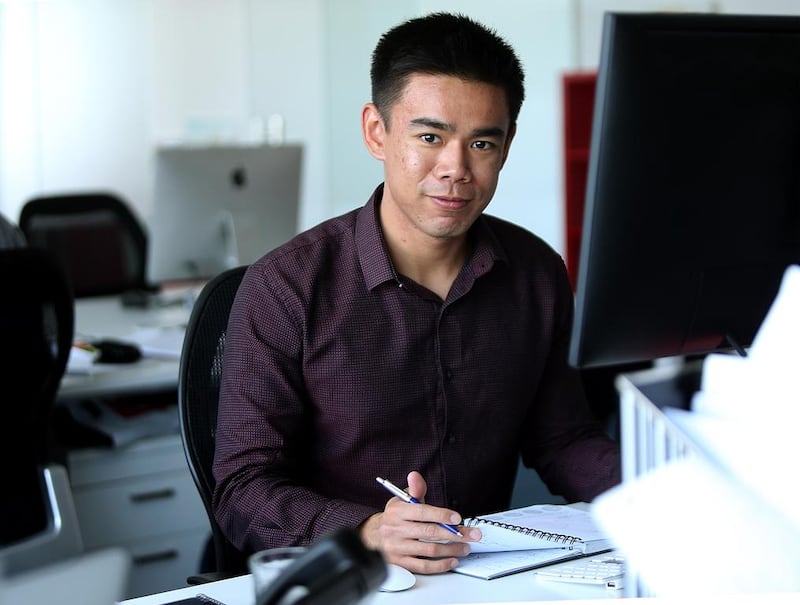ABU DHABI // It is one of the best universities in the region yet its graduates struggle to find work – at least in the UAE.
Since opening in 2010, New York University Abu Dhabi (NYUAD) has competed for students with some of the world’s best institutions. This year it admitted only 3 per cent of applicants – all with credentials rivalling those accepted by Ivy League colleges.
But employers’ perceptions of the value of degrees make it difficult for graduates to find employment in the UAE, particularly for foreign students.
This, experts say, is partly because of the number of branch campuses from foreign universities. The UAE has about 30, the world’s highest concentration.
Without a neutral ranking system or unified quality control, distinguishing the quality of institutions can be difficult for students seeking an education and employers hiring graduates.
Phil Baty, editor of Times Higher Education, which compiles the World University Rankings, acknowledges there are challenges for branch campus graduates.
“Students have to rely on the brand of the parent institution.”
Branch campuses are not included in world rankings although some, such as Wollongong’s Dubai campus, made it to the new “top 50 universities under 50 years old” rankings.
“New York University is one of the best in the world, ranked 30th, while Wollongong is ranked in the 251 to 300 band,” Mr Baty said.
“The big question and challenge for university rankings is to assess the quality and standards in the branch campus alone.
“NYU insists NYUAD is a fully fledged part of NYU in Manhattan, with the same teaching standards and quality of faculty and should be seen, and ranked, as part of the parent university.
“Other branch campuses can sometimes be a shadow of the parent, trading off a brand.”
Branch campuses in Dubai are regulated by the Knowledge and Human Development Authority, which ensures standards are on par with the home institution.
Universities such as NYUAD are producing top-calibre graduates, but with many obstacles to finding employment the country risks losing the talent.
This academic year, the school admitted 299 students from more than 10,000 applicants.
Indonesian Petrus Bosa Layarda, 24, an economics graduate, said there were many challenges to finding work.
“There is a lack of internships here during academic semesters,” he said. “The culture of wasta makes it hard for graduates to compete with others who have better connections.
“We don’t have name recognition yet, especially outside Abu Dhabi. A lot of firms prefer graduates from the American University of Beirut (AUB), which has the best recognition here.”
AUB placed in Times Higher Education's 501 to 600 category, showing that rankings did not figure with employers.
Having graduated only two cohorts with the third on the way, NYUAD has some work to do.
“A recruiter once said that although he recognised NYUAD as a good school, and I graduated with a top grade point average and have a fair breadth of experience, he didn’t think NYUAD was a target for firms because firms source talent from certain target schools,” said a former student.
He said former NYUAD students must “differentiate ourselves as leagues apart from other graduates of foreign campuses” and show “that we are more competitive than alumni of Oxbridge or Ivy League”.
Over the past three years, NYUAD has had an impressive number of prestigious graduate scholarships – six Rhodes scholars, five Fulbright, one Schwartzman and one Truman. In the same period, NYU has had one Rhodes, 20 Fulbright, one Schwartzman and one Truman.
Columbia has not produced a Rhodes scholar since the 2009-2010 academic year. Harvard had five last year and two in 2014.
US university counselling specialist Peter Davos, Hale Education’s managing director, said that in time there would be greater local realisation and appreciation of the excellence being turned out.
“What NYUAD lacks, as is to be expected of any new institution, is a group of strong alumni in decision-making roles, which impacts recruiting.”
Dean Hoke, a consultant with Edu Alliance, said the challenge lay with recruiters. “Most HR people have not lived in the country for long and have limited awareness of local universities.
“This is why it is so important for corporate executives and senior HR people to be engaged with the university community.”
mswan@thenational.ae






